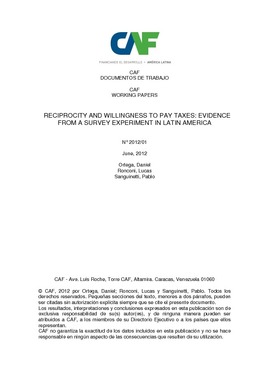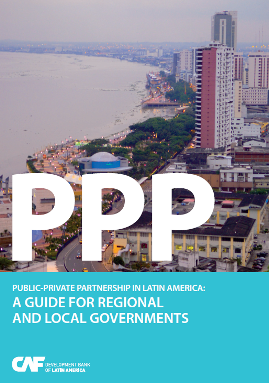Reciprocity and willingness to pay taxes: evidence from a survey experiment in Latin America
Abstract
We provide the first experimental attempt at measuring reciprocity in tax collection in developing countries, where enforcement institutions are weak, and where tax rates and in general tax observance is lower. In a household survey carried out in 17 Latin American cities, we randomly provide respondents with positively or negatively information on the local Government's administration; this information significantly altered perceptions on the quality of the local government in two cities, and we find that in Rio de Janeiro -where a relative high degree of tax autonomy allows citizens to make a clear link between taxes and the provision of public services- people's perception on the quality of the local government can have sizable effects on their willingness to pay taxes.
Subject
Country / Region
Date
2012Cite this publication
Belongs to collection
Items Relacionados
Public-Private Partnership in Latin America: A Guide for Regional and Local Governments
PPPs are complex, long-duration contractual structures with higher transaction and financing costs than conventional procedures. Furthermore, governments ...
RED 2025. Chapter 5: Subnational government revenues: The role of taxes and transfers
This chapter examines the revenue structure of subnational governments in Latin America and the Caribbean, where, on average, 58% comes from transfers ...
Determinants of Slum Formation: The Role of Local Politics and Policies
One-third of the developing world’s population lives in urban slums and the absolute number of slum residents grew from 650 million in 1990 to 863 million ...





